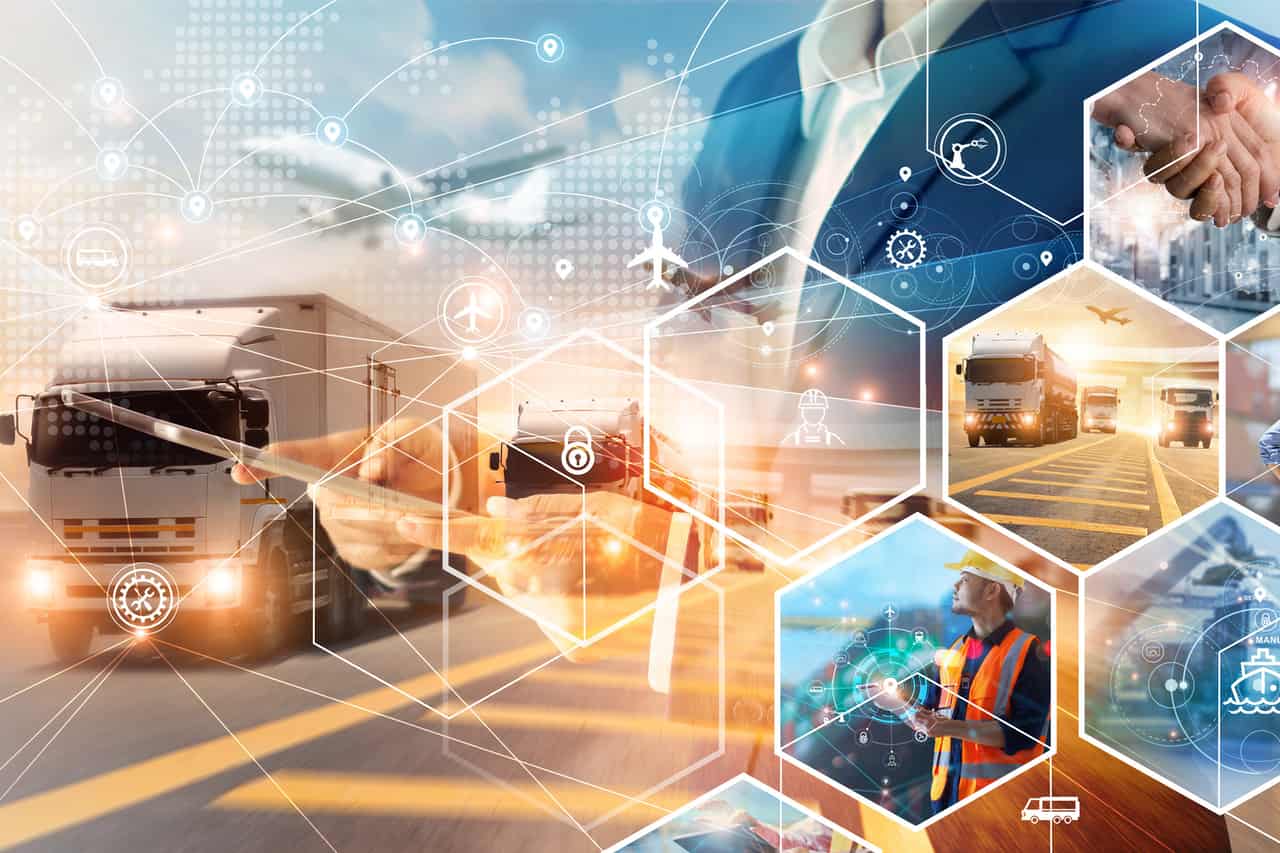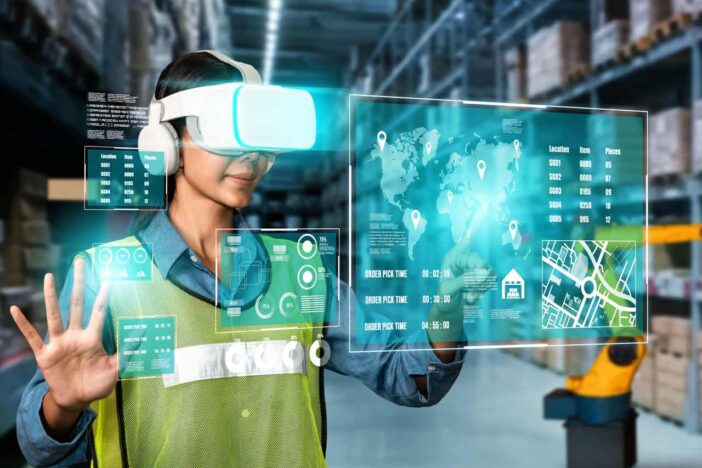In a world where everything is interconnected in the most intricate ways possible, logistics and the freight industry plays a vital role in keeping every other sector afloat and functioning. Serving as the connecting wires of the business and consumer world, the freight industry is the unit that ensures the continuity of business operations by providing raw materials. It also bridges the distance between the producers and the consumers.
Like any other sector or industry in the business world, the freight industry has also experienced drastic changes, most especially within the pandemic and post-pandemic period, and like many industries, it has looked to technology to help it stay afloat and fully functional while exploring different ways to achieve efficiency.
Today, like many industries, the logistics industry has been on the mend, taking in and adapting new technologies to improve its functionalities. While these new technological introductions are making big waves in the industry, there is, of course, still room for more improvement. In this piece, we’ll introduce some new technologies shaping the freight industry and how they have been making waves and bringing better results as a whole.
Importance Of Keeping Up With New Technologies In The Freight Industry
Today’s market has experienced a great shift in demand, mindset, and rules. Gone are the days when consumers were contemptuous of not knowing or being given little information about the state of things. Today, the desire to be informed is vital in business. Consumers wish to be aware of everything concerning their consumption capacity, and they use criteria like flexibility, quick services, optimum customer service capacity, and real-time visibility to judge the functionality of any industry. With the latest state of things, a freight industry that doesn’t fit or meet these new criteria would not survive.
Finally, the entire business world has been playing catch up with the latest trends; business operations have improved based on technological advancements, and so have other areas such as production, communication, and so on. Considering that the freight industry is a connecting line between all these industries, it is pertinent for it to be at par with the new demands ahead of it. And this can only be possible with the introduction and usage of new technologies in its operations.
The New Technologies Shaping The Freight Industry
1. Artificial Intelligence (AI) And Machine Learning (ML)
One of the first in line when it comes to new technologies in the freight industry is AI and ML, and while these two have proven to be highly useful in other industries, they make a whole lot of positive impact in the logistics industry.
As an industry that thrives and works with data accumulation, analysis, and flow, the logistics industry has been a victim of poorly analyzed data that has led to errors in decision-making. But with the introduction of AI and ML technologies, data collation, analysis, trend monitoring, and identification can be made in a larger volume with minimal human input or intervention, reducing human-made mistakes which once prevailed in the industry.
A logistics system well-integrated with Artificial Intelligence sees improvements in all areas, like demand expectations, as AI and ML can accurately analyze and give a range on expected demand for adequate preparation and profit analysis through proper data like records and influencing factors.
These technologies are also employed in warehouse management to improve planning processes, overall maintenance, and upkeep of freight, create more efficient operations and improve information analysis for future demands and purposes. These are also used in workforce management to optimize workforce output and functionality through proper route examination, employee selection, supplier needs, and much more to ensure that the workforce is streamlined and fit to carry out the necessary task.
The list of areas and means with which AI and ML facilitate supply chain operations are indeed endless, further emphasizing just how efficient the industry can be with such technology in place.
2. Autonomous Transport
To boost vehicle safety, ensure efficient and safe transportation of goods, and reduce human error in transportation processes, autonomous vehicles come as the new technology for transportation. Autonomous transports come in the form of e-vehicles such as self-driving trucks, ghost cargo ships, and in some cases, trucks with autonomous operation functionalities that are still driven by humans, as well as drones.
Designed to improve and increase fuel efficiency in various instances, reduce traffic delays, truck malfunction, and much more, autonomous vehicle technologies like TruckWings can be introduced into the freight industry to save costs and double operations. This technology again can be used with AI-enhanced technologies to optimize travel routes, reduce delivery time and provide seamless freight services.
In the case of drones, prompt, efficient, and seamless doorstep delivery can now become a thing. Companies like Amazon are already looking utilizing drones for package deliveries to reduce instances of human contact while fostering reliability and efficiency.
3. Internet Of Things (IoT)
Internet of Things is fast becoming a part of our daily lives, and now, it’s in the freight industry too. Just as the freight industry is the link between businesses and consumers, IoT serves as the technological manifestation of that connectedness by connecting physical items to internet-enabled systems and devices. By utilizing IoT, logistics services can become more self-monitoring and efficient, with lesser costs incurred to maintain equipment, trucks, and other items utilized in the industry.
IoT in the freight industry is used in a variety of ways. It can be used in the warehouse for functionality and maintenance with smart sensors alerting operators and robots as the case may be to load trucks, pack orders and inspect orders before transportation, or inform when a truck or a piece of equipment requires maintenance.
We can utilize IoT in tracking through GPS, sensors, and RFID tags. With these in place, logistic companies can access real-time route patterns, monitor packages, and optimize route systems for efficient deliveries and reduction in transfers and transportation.

4. Blockchain
While the blockchain is usually associated with cryptocurrency, the freight industry also employs it. The blockchain comes in as the ideal technology for proper documentation, document verification, as well as information safety and protection.
With blockchain technology—a distributed or decentralized ledger system that is shared by individual stakeholders or parties—logistics companies can now synchronize all their information entries in all their networks and branches, making documentation across all platforms easy. In addition to this, all the information entered is digitalized and stored in encryptions, thereby reducing manual paperwork, making access exclusive to only the intending shareholders, and giving room for privacy and information safety. Blockchain technology in logistics will facilitate and speed up information acquisition and dissemination for faster and more efficient delivery. And in addition, it creates room for transparency for consumers by offering them the chance to track their orders all through their journey.
Another aspect of blockchain technology that most logistic companies are diving into is the smart contract. This allows the companies to reduce bureaucratic procedures, reduce errors and automate the procurement process.
5. Cloud Computing
In addition to blockchain technology, another fast-rising technology in the logistics industry is cloud computing.
Cloud computing and cloud-based services create easily accessible networks of communication and data for information sharing and documentation. This technology acts like a link between logistics companies and the consumers eliminating connectivity barriers while giving room for safe data exchange and collaboration. As a technology not limited by physical capacity or space, it further allows access to cloud-based logistics information from anywhere.
Of course, it also reduces the risk of infrastructural maintenance, especially IT infrastructure, and reduces instances of data loss while also reducing cost.
6. Transportation Management Systems (TMS)
For an industry that requires skilled and proper organization and management functioning at the center of its operations, the Transportation Management System is a new technology that offers solutions to many management issues the industry faces.
The TMS is an all-encompassing system perfect for transport management, and it comes with the capacity to adequately synthesize and control the operations of many of the new technologies mentioned in this piece for proper functioning and efficiency.
With a transportation management system software in place, a logistic company can effortlessly manage its carriers, optimize transport routes, document data digitally, keep track of all its orders and operations, and much more. Additionally, this system will help increase transparency, provide optimum customer service, reduce costs and provide real-time information for both the company and the consumers.
Conclusion
As the world keeps advancing technologically, various industries have been able to advance alongside unprecedented improvements and proposed developments. The freight industry isn’t left out of all these advancements. As new technologies like IoT, Artificial Intelligence, Cloud computing, etc., are introduced and incorporated into the industry, there is no doubt that their viability and functionality will continue to improve and meet up to consumer standards.
These technologies have improved the operations surrounding the freight industry, making it easy and accessible for the stakeholders involved, whether you’re the forwarder, the employee, or the consumer. Stay updated with these trends and more to see the future of the freight industry.





